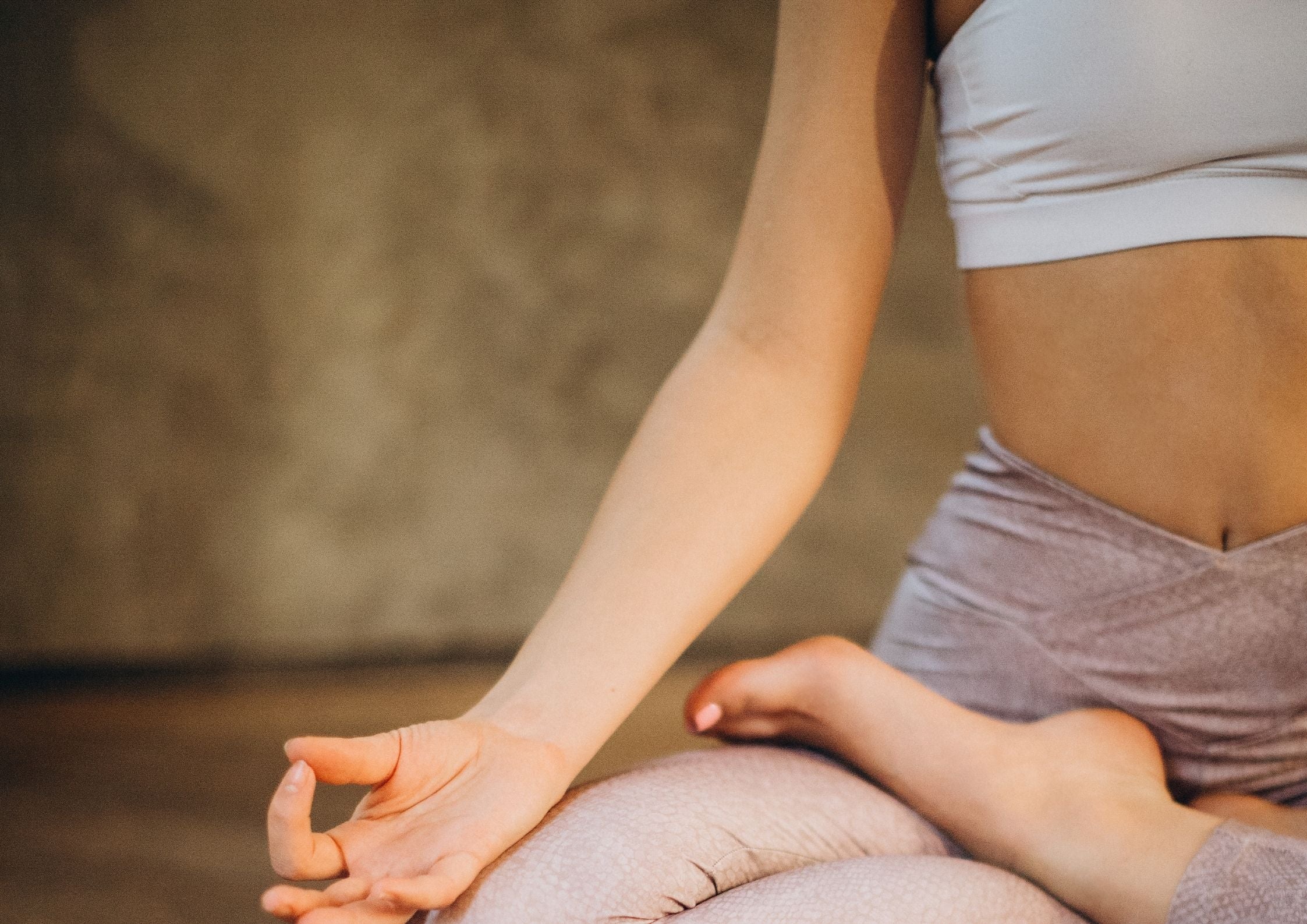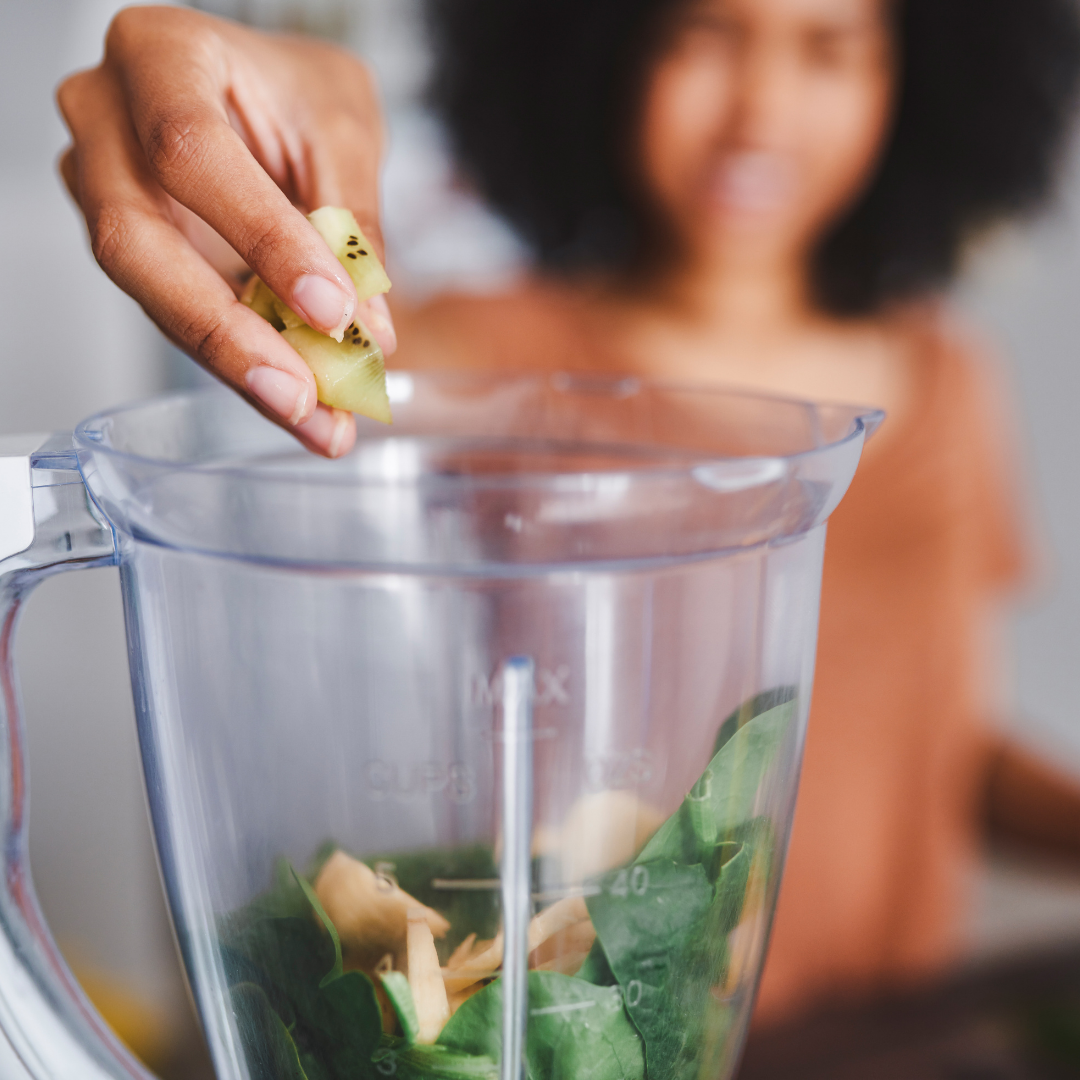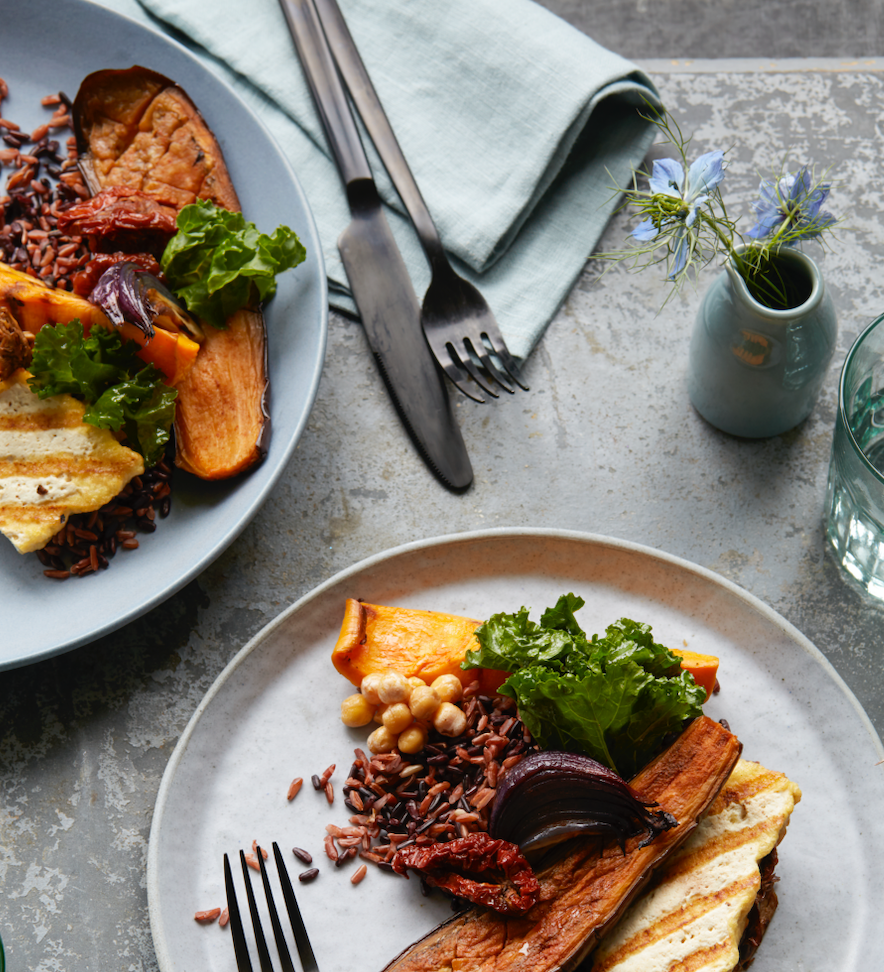
PostPartum Wellbeing | Nutrition & Workout Tips
PostPartum Wellbeing | Nutrition & Workout tips
The world post-birth can be overwhelming for many mothers, as they experience such an instantaneous, yet beautiful change. One aspect that many new mothers tend to seek information and advice in is exercise. There are many aspects to consider before hopping back into an exercise routine.
To bring clarity to the strong mothers who are currently or soon to be in the postpartum phase, Kurami is joined by Funmi Olataye, founder of the fitness platform focused on empowering mothers, StrongForEveryday. We discuss all things nutrition and exercise for new mothers.
Click here to watch the full Instagram Live.
G: Good morning, Funmi, and thank you for joining us today! You are the founder of the wellness platform curated for mothers, particularly those who have newly given birth. Would you like to tell us more about your platform, Strong For Everyday?
Pre-pregnancy, exercise was a large part of my lifestyle, and going into pregnancy I was no longer sure of what I could and could not do. The doctors prescribed quite conservative exercises. As they suggested, I really focused on walking, aquanatal exercises, and water aerobics classes, but I knew that after pregnancy I wanted to be the strongest that I had ever been. Once giving birth, I realised that there was a lack of information around postpartum exercise, and even my GP was not very helpful in providing advice.
Overall, what I was sure of is that I wanted to become a personal trainer, and I wanted to work with other mothers. Once my daughter was born, I completed my personal training qualification, and I wanted to enable other mothers to be strong as well, and provide the information that I felt I was lacking all throughout pregnancy, as well as through the postnatal stages.
I try to talk to as many moms as possible, whether I am working with them or not, to make sure to help, empower, and educate other mothers as much as I possibly can throughout their postnatal recovery.
G: As a mother yourself, what kickstarted your love for fitness? How far along were you post-birth that you began or returned to your fitness journey?
I was quite active before I was pregnant, slightly active during pregnancy, and in terms of getting back to it post-pregnancy, I waited six weeks as recommended.
The GP provided information that was not very enlightening, so I began doing some simple exercises at home. However, six weeks can still be quite early, as you are still very tired from adjusting to the changes as a new mother. I was mostly focusing on walking at the beginning, and really devoting twenty to thirty minutes for a regular workout took around three to four months.
I slowly introduced new workout styles such as indoor cycling, weight training, and more as time went on and my daughter was able to get into a little more of a routine.
G: How do you make sense of body positivity and encourage mothers to shake away the unrealistic expectations of post-pregnancy?
Again, it is becoming progressively normal to see realistic postpartum bodies on social media, rather than seeing rapid “bounce-back” body posts six weeks after having a baby. What I tell my clients is to focus on what their ultimate goal is: is it how they look, or how they feel? Also, what is realistic for them given their current routine? Do they breastfeed? How do they sleep? There are so many questions to consider! Taking a holistic, 360 approach to their lifestyle is so important; fitness is just one aspect of feeling their very best.
Additionally, you have to be realistic with regards to the changes in your lifestyle and body once you become a mother. When I speak to moms and they state that they want to lose ten kilos, I respond with the question “Why do you want to weigh ten kilos less? Is this because you weighed ten kilos less ten years ago?”. We are much more mature now, and bodies do change! You may not be able to sustain a weight that is less than ten kilos due to the differences in activity and energy levels.
Overall, create a routine that is realistic for you, and make an effort to take care of yourself by increasing your sleep, drinking more water, and eating nourishing meals.
F: As a registered nutritionist, are there any particular foods that you would recommend to fuel mothers after birth, especially those that have returned to exercising regularly?
One of the key aspects that we focus on at Kurami is food and nutrition. We make sure that people are well fed and well nourished. What is missing in postpartum care is the nourishment that we give the mother, as so much focus is applied to how many times the mother can breastfeed, the number of playdates that they can schedule, and more. Sometimes, as a nutritionist myself as well as a mother, making sense of this contradiction and understanding the restraints that I used to experience during postpartum can be hard, as I understand the difficulty that comes with adjusting to the new routine.
Combining my profession with my own personal experience, regaining appetite is what I want to firstly focus on. Your body is so tired after birth, and food can be the last thing on your mind as you just want rest. It is important to rebuild your appetite through delicious meals, and making sure that each of your meals are balanced. Include starchy foods, vegetables, protein, and fruits!
Hydration is also vital as you lose so many fluids through the birthing process, and breastfeeding can be so time consuming that it swayes you away from prioritising hydration. Simply having a flask in an easily accessible location can help you with this.
G: At Kurami, we focus on making nourishment seamless by delivering freshly prepared, nutritionist-approved meals with a unique focus on gut health, to doors around London. All of our meals can be heated up within minutes. Being a mother yourself, do you believe that services like ours are helpful in relieving stress, saving time, and maximising the nutrient density of each meal? Especially in the first three months after birth?
First of all, I completely agree with your previous statement! Breastfeeding can quickly take up so much time before one even realises, and then before you know it, you only have half an hour to try and get something to eat. It can often be quite stressful to prioritise meals and hydration, therefore Kurami is amazing to help those that are on the go to eat, and truly nourish their bodies as well.
G: As the focus is so often on the mothers, I think we can easily forget about their partners! How often do you see both the mother as well as the partner when helping them adjust to new family life?
I tend to speak to the mother more as she was the one that had undergone this experience physically, however the partner is just as much a part of this experience. It is interesting as the partner often takes a step back and focuses on caring for the mother and the baby, however both require support.
G: Now that we have discussed nutrition, what advice would you give to new mothers that are looking to return to exercise, in a safe and balanced way?
First of all, you need to have energy. If you are breastfeeding and not sleeping very well, this can cause you to feel more tired. With sleep, however, this can be difficult to manage as you may have to check your baby regularly, therefore exercise is not something that I would push if you are simply feeling more tired due to this change. You can, however, support the increase of energy by eating more balanced meals, including all macronutrients. We know that there is a stigma around fats, however mothers do need those good fats such as avocado, hummus, and more!
Meal prep is also such a good tool for new mothers. I advise new mothers to try and bulk cook and freeze meals, or make big portions of certain foods such as vegetables, protein sources, grains, and more, so you can create new, nutritious meals through food that is already prepared. If you can, take advantage of meal prep services such as Kurami!
With exercise, think of it as movement! This can be any form of movement. Why not go for a walk with your baby? Or, if your baby is a little bit older, be on the floor with your baby for ten minutes and do a ten minute core exercise! We tend to overthink and over complicate exercise; we do not need a mat or weights, and you do not have to wait for your baby to be asleep, simply focus on fitting in movement when you can!
Finally, definitely wait at least six weeks if you have had a vaginal birth, followed by an appointment with your GP. If you had a C-section you want to wait at least twelve weeks. Either way, regardless of how you birthed, I would highly recommend consulting a women’s health physiotherapist in your area. In the UK, you can request that through your GP, or go through a “Mommy MOT”. This can provide you with an in-depth consultation of where your body is after birth. A “Mommy MOT” with a physiotherapist is about an hour’s appointment, and they check everything from your posture, to your breathing, to your pelvic floor! This can advise you with what areas you need to work on, and present how your body has changed. You only have one body, therefore this is a worthwhile expense to have within these early stages of returning to exercise, to prevent any long term damage.
Overall...
This in-depth discussion truly goes to show that the return to the mat whilst being a mother must be viewed from a holistic and open-minded point of view. The female body is truly beautiful, and the changes that it has undergone can take time to adapt to.
For all of the new mothers out there, be patient with yourself, and transition back into exercise with a loving and gentle approach, with guidance from professionals.



